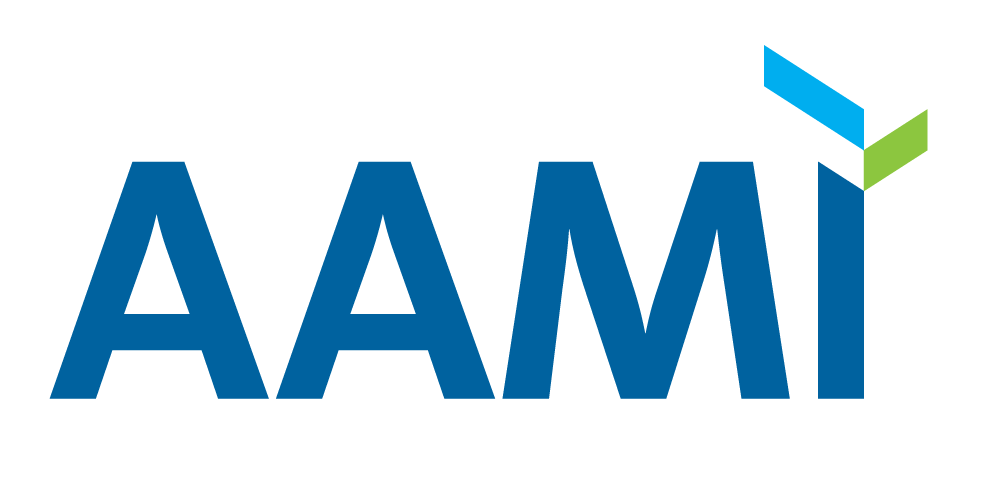AAMI Foundation Awards 2018 Research Grants
August 14, 2018
Contact: Gavin Stern, gstern@aami.org, 1-703-647-2781
The AAMI Foundation has named the recipients of funding from the Mary K. Logan Research Awards Program for 2018. The two grants, worth a total of $79,950, will go to researchers at Brigham and Women’s Hospital in Boston, MA, and the University of Cincinnati College of Medicine in Ohio for projects focused on reducing pediatric medication errors.
This awards program, which was named in honor of AAMI’s former president and CEO, was established in 2016 with a gift from the association’s Board of Directors. It is intended to support research and initiatives that focus on improving patient safety and eliminating morbidity and mortality associated with the use of health technology.
“The AAMI Foundation is extremely proud to support the vital pediatric research being conducted at Brigham and Women’s Hospital and the University of Cincinnati College of Medicine,” said Christine V. Emery, executive director of the AAMI Foundation. “Patient safety is at the heart of our mission, and it is through well-designed scientific studies such as these that we hope to provide enhanced tools and promote systemic changes that will improve the protection of even the most vulnerable patients.”
Improving Medication Administration Safety in the Neonatal Intensive Care Unit
The AAMI Foundation awarded $39,950 to a Brigham and Women’s Hospital research team, led by Kumiko O. Schnock, RN, PhD, a research associate in the Department of Medicine. The group will focus on refining an existing data collection tool that has been tested with adults to determine the frequency and type of intravenous (IV) medication administration errors that occur when using smart pumps in the neonatal intensive care unit (NICU). Such errors can have potentially severe consequences.
“There is currently no standardized approach to measuring IV medication administration safety in NICUs,” Schnock said. “Our observation tool is novel in that it can detect various types of IV medication administration errors through a systemic collection of information about the IV medication administered and a comparison of that information to existing medication errors. This tool automatically identifies the ‘five rights’ of medication-use errors and helps categorize the severity of each detected error’s harm.”
Once the tool is developed, the research team will conduct a pilot study to validate it and then will use the tool to identify issues associated with smart pump medication administration in the NICU.
"It is a great honor for us to receive this privileged award. We believe this award will allow us to achieve our goal, which is to make a positive contribution to medication safety research by improving infusion therapy safety in a neonatal care setting,” Schnock said. “We hope this study will improve the knowledge base related to IV medication errors in NICUs and that these identified errors will allow us to discover areas that require further focus and potential strategies to improve medication safety in NICUs.”
Developing an Algorithm to Detect Potentially Harmful Dosing Errors
Another pediatric patient safety challenge is inaccurate body weight data. This issue is significant because of the frequent use of weight-based dosing of medications and errors propagated by electronic health record (EHR) systems.
“In a pediatric environment, where many medication doses are based on weight, a medication error is possible if a wrong weight is entered for a patient. Yet, kids with severe conditions can have unusual growth patterns, so automated identification of weight errors is difficult,” said Danny T.Y. Wu, PhD, assistant professor of biomedical informatics at the University of Cincinnati College of Medicine and Cincinnati Children’s Hospital Medical Center. “We have developed a computerized medication safety system that can detect weight errors and stop the medication ordering process to prevent errors, but at this point we need to improve the system’s positive predictive value.”
Wu and his research team were awarded $40,000 by the AAMI Foundation to help conduct this additional research.
“This grant will allow us to develop and evaluate a machine learning algorithm to more accurately detect pediatric weight entry errors, bringing our machine learning expertise to bear on this deceptively complex problem. We plan to conduct a pilot test to demonstrate the effectiveness of our algorithm,” Wu said. “In the long term, we hope this work will help other pediatric health institutions reduce medication errors and improve patient safety.”
Applications for the AAMI Foundation’s next grant cycle are due by Dec. 31, and the awards will be made in June 2019. For more information visit https://www.aamifoundation.org/awards/mkl-awards/.
AAMI (www.aami.org) is a nonprofit organization founded in 1967. It is a diverse community of more than 10,000 healthcare technology professionals united by one important mission—supporting the healthcare community in the development, management, and use of safe and effective health technology. AAMI is the primary source of consensus standards, both national and international, for the medical device industry, as well as practical information, support, and guidance for health technology and sterilization professionals.
